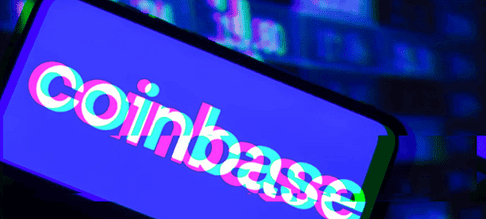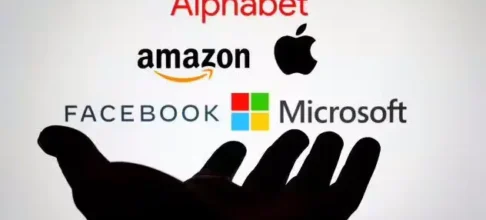Sustainability roles seem to ebb and flow in the job market. One day there are many, the next it’s as if they are non-existent. So how do you find the role for you when it feels like the positions are shrouded in mystery or not even real?
One of the first question to ask is, "Do I want to work for a company that does sustainability, or do I want to work for a company’s sustainability function?" These are often very different, both in mindset, strategy and the work you will be expected to do. And it is possible to work at a company providing sustainability products or services, but hold a role that has little to nothing to do with sustainability work — such as working in the company’s HR department.
Alternatively, you can be a sustainability manager at Apple, Starbucks or Netflix — companies which products have nothing to do with sustainability — and affect business decisions to transform the company’s sustainability and resiliency. Below are five types of sustainability functions — what the day-to-day work is like and how to find roles within them — so you can find which is the best fit for you.
1. Sustainability in supply chain functions
Supply chains are becoming an integral part of sustainability strategies. They demand a sustainability and traceability overhaul. Sustainability roles within supply chain are often focused on responsible sourcing, compliance and supplier engagement. Folks in these roles often work globally to ensure that there is visibility at each point in the supply chain. Much of this work is done with a social sustainability lens where employees focus on the intersecting labor and human rights issues such as child labor, fair wages, health and safety and discrimination and harassment, along with more classic sustainability issues such as deforestation and carbon emissions reductions.
If you take a job in this area your responsibilities are likely to include writing company policy, creating compliance processes, governance and reporting, and training procurement, sourcing and manufacturing teams on such compliance.
When seeking out these roles, I’d recommend looking into companies with vast supply chains in any industry. Some examples from Gartner’s Supply Chain Top 25 of 2022 include Cisco Systems, Colgate-Palmolive, PepsiCo, Pfizer and L’Oreal.
When searching for jobs in this function, include terms such as responsible sourcing, responsible supply chain, traceability, resiliency and transparency along with the general term sustainability.
2. Sustainability in procurement functions
Procurement is keeps supply chains going. In the typical procurement manager roles, employees are focused on cost-saving and getting the best contract in place from a supplier and for their company. When sustainability is part of procurement, this work involves directing money to more sustainable suppliers — maybe suppliers who are considered diverse (defined in the USA as women-owned, LGBTQ+-owned, veteran-owned, minority-owned and people with disabilities-owned businesses) or suppliers on the cutting edge of the circular economy.
The United Nations Development Programme (UNDP) states, "Procurement touches everything from buying office vehicles, health commodities and election materials to procuring energy systems as well as consultancy services. All these activities combined form a strategic function that is, not only due to its large share of our yearly expenditures, an extremely important part of our work." Procurement is a powerful function with a lot of influence because the work involves choosing who your company works with and investing in them. It requires an understanding of a company’s spend strategy, reviewing and interpreting data, finding smart solutions to complicated problems and building and maintain relationships with people across the value chain.
In research done by consulting group Hackett, 92 percent of respondent companies are expected to have sustainable procurement programs in each category by 2023. The future of supply chains and value chains will rely heavily on procurement’s choices.
When searching for jobs in this function, include terms such as sustainable sourcing, supplier partnerships, social procurement and supplier diversity along with the general term sustainability.
3. Sustainability in a company-wide strategy functions
Many businesses use sustainability as an add on to their business strategy, when sustainability is truly a business strategy in and of itself. The purpose is to transform a business so that it is future proofed. Strategy roles aim to present the business case for sustainability and generate buy in from other teams.
Searching sustainability is not enough. Today, you may be better off searching ESG, risk management, traceability, value chain and transparency.
It takes knowing the right information and data, enabling cross functional relationships, influencing leaders, developing frameworks and governance, and thinking out-of-the-box, to be the overseer or facilitator of large, company-wide sustainability initiatives. It’s a lot of juggling and wearing different hats. Forbes states that 90 percent of executives think sustainability is important, but only 60 percent of companies have a sustainability strategy. This gap means there is room for growth and room for sustainability leaders to step in and step up.
When searching for jobs in this function, include terms such as strategy, reporting, communications, storytelling and risk management along with the general term sustainability.
4. Sustainability at a startup
Startups are often held together by an idea, lots of scrappiness, a hint of innovation and a small group of people doing many activities. Startups are leveraging sustainability as a key part to their business from the inception the company. You can get in on the ground floor of a new business model.
Unlike older companies, sustainability can be part of the foundation. Nowhere is it more important than in a startup to be a visionary and sustainability leader willing to problem solve, think innovatively, and network.
Wellfound (formerly AngelList Talent) is a great place to look. Search terms are trickier because employees wear many hats, but the key is to find a job that you can use to incorporate sustainability or a startup that is putting sustainability at its core. As an employee at a new company, you can often define your role and responsibilities which makes it an ideal space for people looking to create a new sustainability strategy and process.
5. Sustainability at a nonprofit
Nonprofits are likely targeting for a sustainability cause, or they are the philanthropic arm of a corporation, such as the The Walmart Foundation, Bloomberg Philanthropies and Google Foundation. These roles expect strong communications and marketing abilities, administrative skills and alignment with organization values. Because sustainability has "infiltrated" business as usual, nonprofit sustainability roles are less obvious because sustainability is starting to be part of everyone’s role.
You could also identify a sustainable cause you are passionate about and apply to nonprofits that focus on that issue such as deforestation, renewable energy access, and clean water and access.
When searching for jobs in this function, include communications, governance, strategy, engagement, reporting and philanthropy along with the general term sustainability.
There are many other roles for sustainability in business administration, marketing and branding, HR, product and more. You can find them by digging on job sites and company websites. The field is always evolving so we must keep up with the lingo.
Searching sustainability is not enough. Today, you may be better off searching ESG, risk management, traceability, value chain, transparency and so on and so forth. Once you know what function you want to be in, know your skills and get creative with your searches.
One thing to keep in mind: I often chuckle when I see roles requiring 15-20 years of work in circularity and sometimes even in sustainability. Anyone who has that length of experience is likely a unicorn or was extremely ahead of their time. While the concepts aren’t new, the business functions are. So don’t rule yourself out if you see that on a job posting. I would apply anyway. The future is bright — search engines will get smarter, functions with expand and shift, sustainability work will be prioritized whether companies like it or not, and the mystery will fade as your career and leadership soars.
Read More














